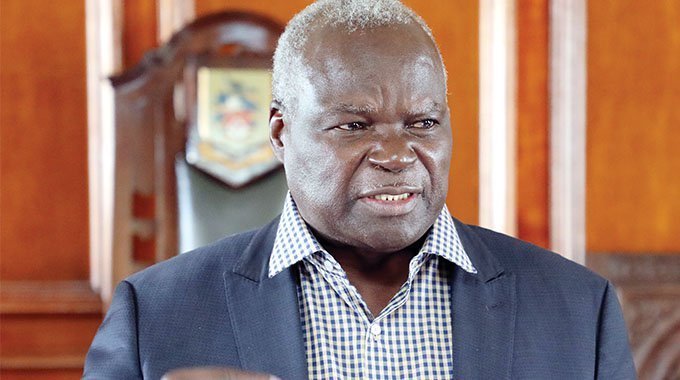By ZIMCODD
As an evolving issue, the Zimbabwe Coalition on Debt and Development (ZIMCODD) is featuring again the issue of the Chilonga community by sharing this outcome statement. The statement provides ZIMCODD’s critical reflections, analysis, and recommendations of the issues presented during the Public Finance Management Reform Indaba that focused on Statutory instrument 50 (SI 50) Communal Lands Notice.
The nation’s visceral reaction to S1.50/2021 reflects a broad-based public consensus against internal displacements and evictions in Zimbabwe. ZIMCODD joins in appealing to the Government of Zimbabwe to do more to ensure the free, prior, and informed consent of communities at risk of forced displacements; safeguard constitutional rights; facilitate a just and equitable redistribution of the nation’s wealth for the benefit of the many and not the few; and Increase transparency and accountability around Public, Private, Partnerships (PPP).
The Masvingo Magistrate Court has since given an Interim Relief against the possible eviction of the Chilonga Community. Historically, the Chilonga Community has endured three other historical incidences of internal displacement. In 2021 they found themselves at risk of becoming squatters on their own ancestral lands. Yet, Section 74 of the Constitution of Zimbabwe protects all Zimbabweans from arbitrary evictions. It states that: ‘No person may be evicted from their home or have their home demolished without the order of Court after considering all the relevant circumstances.’
The Minister of Local Government, Urban and Rural Development is expected ‘to appear before the courts of law on the 31st of March 2021 and show cause why he or his agents must not be interdicted from evicting the Chilonga community from their ancestral homeland.’
The Constitutionality of SI 50/2021 is also being challenged in the Supreme Court of Zimbabwe. These legal challenges necessitated by the Communities’ unheeded grievances, reflect badly on Zimbabwe as an attractive investment destination and undermine ongoing Open for Business reforms. An open and inclusive Parliamentary-led consultative process involving the Chilonga Community could have and perhaps can still help address the legitimate concerns of the Community without jeopardising the potential long-term benefits of the $60 million lucerne grass Project by Dendairy.
Calls for the boycott of Dendairy products bring into perspective the broader question of Investors’ moral obligations to safeguard the rights and collective interests of host communities. Increasingly conscious consumers have in the past weeks been confronted with the disconcerting choice to boycott a local company in order to protect the rights of fellow Zimbabweans. This must not be so. Dendairy has a moral obligation both to its Zimbabwean customer base and shareholders to outline measures to safeguard community rights from eviction, equitably share the wealth with locals, and protect the local environment.
The subsequent repeal of SI 50 under Statutory Instrument 72A sets aside 12 940 hectares in Chiredzi for the purpose of establishing an irrigation scheme. Clarification from the Minister of Local Government, Urban and Rural Settlement, Hon. July Moyo indicates that displacements will impact about 2 298 families in order to make way for irrigation pipes and canals on 6000 hectares of the 12 000 hectares gazetted. In his own words, the Minister reassured the nation that ‘there will be no dislodging of anybody’ rather there will be a re-organising and replanning.’
Also, according to Minister Chadzamira “affected people will still be resettled in the same area and will benefit from the project as lucerne grass out-growers.” Other expected benefits of the Project include the construction of new railway lines, modern highway,s, and all-weather bridge. These promises ring hollow to a community that has endured years awaiting the fulfillment of promises for the provision of basic amenities for a decent life. Community representatives dispute the government’s figures and overall assessment of the human rights, economic and cultural implications of the proposed developments. In this instance, Host Communities’ rights both to accept or decline major investments must be respected. The free, prior and informed consent of the Chilonga Community should have been sought before the gazetting of Statutory Instruments affecting their rights and collective interests.
The unresolved historical grievances of the Chilonga and other communities with a history of displacement warrant concerted national attention spearheaded by the National Peace and Reconciliation Commission. The government’s stated commitment to the non-repetition of forced displacement and evictions should be accompanied by equalising public investment and public service delivery to help marginalised regions make up for lost development. A special Fund to support, compensate and provide social security for Zimbabweans affected by economic development projects should be established to pay for the foreseeable and unforeseen impacts of economic development projects on host communities.
The Government of Zimbabwe anticipates an 11.3% growth rate from the Agriculture and Forestry sector. This growth is on the backs of the Zimbabwean taxpayers who will have invested ZWL46 289 million of public funds through the 2021 National Budget allocation to the Ministry of Lands, Agriculture, Water, Climate, and Rural Resettlement. Zimbabweans will also have to pay for the loans and debts that Government will acquire in order to pay for infrastructure development Projects. The government owes it to Zimbabweans to ensure fair, just, and equitable returns on public investments in the agriculture and forestry sector.
ZIMCODD calls upon Parliament to institute a public inquiry to ascertain the voracity and feasibility of the Ministry of Agriculture’s technical plans and overall business case for the establishment of the 12 000-hectare Irrigation Scheme as outlined under Statutory Instrument 72. The terms of reference of this Parliamentary Inquiry must also review the Community benefit of the proposed 60 million lucerne project for which the government has awarded close to 6 000 hectares of communal lands to a private sector company.
This Inquiry is vital to restore public confidence in the Government’s commitment to upholding the rule of law, facilitating democratic participation, and safeguarding sovereign wealth. It will also illuminate much-needed reforms to Public, Private Partnership arrangements. Legally enforceable guarantees of Community benefits and tax compliance from Public-Private Partnerships must be standardised across mining, agricultural, energy, wildlife, and other major investments






